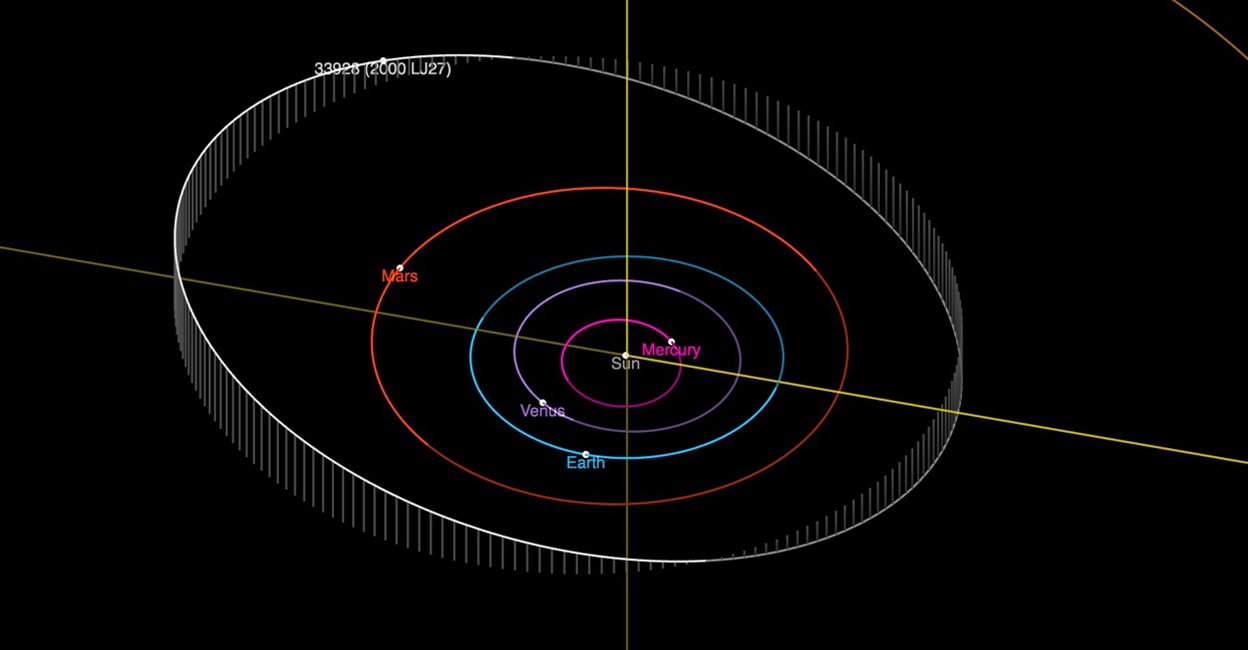Minor planet named after Malayali, India's first meteor astronomer

Mail This Article
The International Astronomical Union (IAU) has named a minor planet after India's foremost meteor astronomer Aswin Sekhar.
The honour was bestowed on the young Malayali at the Asteroids Comets Meteors Conference 2023 held at Arizona, USA, on June 21. Minor planet is the official name for asteroids.
Here is what the official IAU citation says: "Aswin Sekhar (b. 1985) is the first professional meteor astronomer from India in modern times. He has made important contributions to the field of meteors in meteoroid stream dynamics, particularly in the effects of relativity and resonances in meteoroid streams."
To get a sense of the grandeur of the recognition, one only has to look at the five Indians who were bestowed this honour before.
Two Nobel laureates: Subramanya Chandrasekhar, the Indian-American theoretical physicist who won the 1983 Physics Nobel; C V Raman, the great physicist who won the Physics Nobel in 1930 for discovering the light scattering effect now known as the Raman Effect.
A mythical mathematician: Srinivasa Ramanujan. A legendary space scientist: Vikram Sarabhai. And a great astronomer: Manali Kallat Vainu Bappu of the Wilson-Bappu effect.
Guardian of the Galaxy
Aswin currently works as an astronomer affiliated to the Paris Observatory which comes under the Science, Technology & Education Ministry of the French government.

"My profession is mainly about studying the evolution of orbits of asteroids, comets and meteor streams and how they interact with the Earth," Aswin told Onmanorama.
"Technically my work profile is of a 'solar system dynamicist' whose job is to study the orbital evolution of various bodies in the solar system. It is about modelling the past, present and future trajectories of bodies in the solar system using powerful supercomputers. They are useful in assessing impact risks and preventing and preparing for colliding bodies on Earth in future," he said.
In a sense, astronomers like Aswin are the world's first line of defence against falling meteors, asteroids and comets.
Cosmic naming ceremony
The IAU, which has honoured Aswin, is an international association of professional astronomers, at the PhD level and beyond. It is the recognised authority for assigning designations and names to celestial bodies. On June 21, when an asteroid was named in Aswin's honour, the IAU gave roughly 50 asteroids the names of prominent scientists.
The minor planet or asteroid named in Aswin's honour was discovered in 2000 by an astronomer at Lowell Observatory Near-Earth Asteroid Search (a project funded by NASA), Arizona, USA. From now on, this asteroid will be known as (33928) Aswinsekhar = 2000 LJ27.
33928 is just a random number given by the database computing system. The 2000 in the title stands for the year of discovery of the minor planet. LJ is an alphabet code that denotes the month and week of the asteroid's discovery.
Named and the nameless
Over eight lakh minor planets have been discovered so far. Some are not allowed to exist as just some cosmic rock piece and are exalted with names of celebrated scientists. Globally known astrophysicists like Isaac Newton, Albert Einstein, Paul Dirac, Arthur Eddington, Stephen Hawking, and Jocelyn Bell have minor planets named after them.
To be named after a prominent scientist, an asteroid has to meet just one condition. It has to be non-threatening. The IAU usually avoids any body which has any potential risk of colliding with Earth to be named after any person.
There are hundreds of thousands of nameless minor planets floating around in the universe.
Celebrity and scientist asteroids
There are two kinds of nomenclatures: ceremonial and non-ceremonial. In the ceremonial kind, the discoverer of the celestial body is given the naming rights. The astronomer who first spots the celestial body can propose the name of his choice to the IAU Small Body Nomenclature Committee, which will then assess whether the chosen person befits the honour.
This is how asteroids have names like Tagore, Gandhi, Vishwanathan Anand, Pt Jasraj and Kailash Satyarthi. This is a kind of honorary doctorate.
Then there is the non-ceremonial naming. This is to honour scientists for their body of work. Top scientists will have to nominate a name and justify the choice. After this, the IAU Small Body Nomenclature Committee has to verify and approve the name.
In Aswin's case, top experts from 'small body dynamics' from multiple continents nominated his name. The IAU later approved it. Once the approval was given, the IAU picked a suitable asteroid (discovered by someone else and unnamed yet) from their database and assigned his name.
The Asteroids Comets Meteors Conference, which cloaked an asteroid in Aswin's name, happens once in three years. In other words, the non-ceremonial naming of celestial bodies happens every three years.
However, the ceremonial naming can happen anytime, whenever the discoverer wants his asteroid to be named.
Aswin's Kerala roots
Aswin was born in Ottapalam, and did his schooling at Cherpulassery, Palakkad and Kochi.
"My childhood mentors Krishna Warrier (former Additional Director CDAC Trivandrum) and Shashi Warrier (novelist) had a big role in inspiring me into the magical world of physics and astronomy. They encouraged me to look up at the sky and look for celestial events like meteor showers, comet apparitions, eclipses and so on. This triggered my interest in cosmos and pure science. My mentors encouraged me to visit science museums and planetariums in different parts of the country," he said.
It was the renowned Scottish astrophysicist Dr David Asher who introduced Aswin into the formal world of professional meteor science and taught him to model meteor streams using numerical integrators as my PhD supervisor in the UK. "He became a world leader in forecasting meteor showers accurately during the 1999 Leonid meteor storm," Aswin said.
Incidentally, Dr Asher's father, professor Ronald Asher, who passed away on December 26, 2022, was a linguist of repute and a specialist in South Indian languages. He was a great friend of Vaikom Muhammad Basheer.


